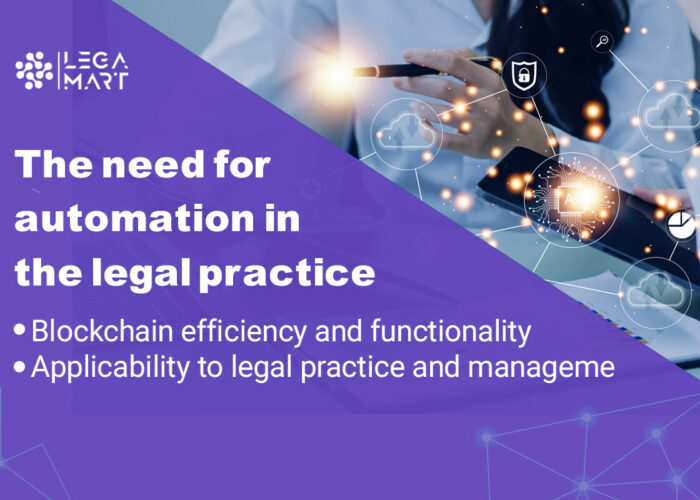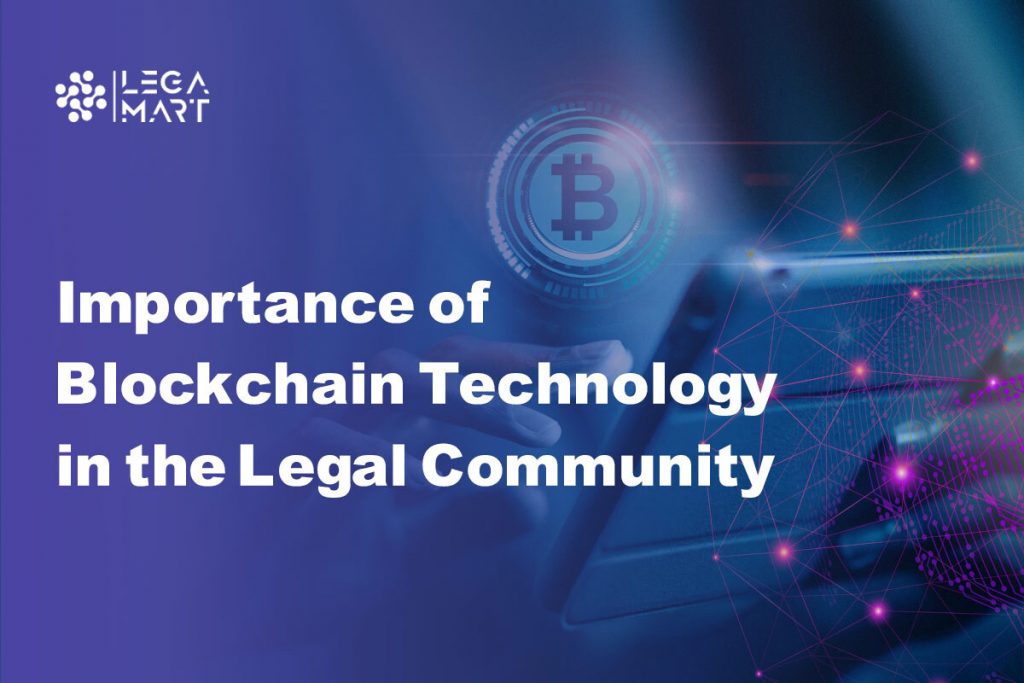Background
Technology development is at the heart of every boardroom discussion around the world. The primary context is the adoption of technological innovations and how they improve the standards of work for law firms. The need for efficiency in office workloads sparks using electronic systems to manage the workload.
The legal profession is known for its fondness for documentation and hard evidence, so more work remains to be done to mitigate the status of technology such as Blockchain technology in the legal community. The focus is on professional standards and ethical obligations arising from practice. Therefore, the need for a policy that outlined action and innovation had to be placed in the context of the use of technology in the legal field to solve this.
The unpredictable arrival of the COVID-19 Pandemic created urgency for solutions. With limited mobility and social interactions, many are turning towards digital systems and automation. In Kenya, court hearings are conducted online as the other day-to-day operations in law firms.
Arbitration stepping into the world of Metaverse – Legamart
Introduction
Blockchain is a structure representing a digital ledger that stores records representing transactions and activities in a database connected by nodes. It supports the tracking of assets and information in a digital network. Furthermore, it facilitates how information is received and calculates its accuracy hence improving the efficiency of the transactions. In the legal profession, information delivery is recommended because it provides instant response and all the information end to end, whether it’s on payments or orders. This hence means that one can work from anywhere.
Technology has introduced a new limb to law, especially the organizations involved in the metaverse, and digitization of equities and debt instruments, all these being new aspects not covered in the voluminous books filling up library shelves. These are just some of the advances made in this profession, and many would like to improve their workflow and skills. We have not yet recognized the immense potential and ways processes can be efficiently executed. The numbers can improve if more efforts are put into comprehending its applicability.
The need for automation in the legal practice

Legal professionals rely entirely on the accuracy of data and record keeping. Therefore, whether for proof or simply to conduct business, blockchain technology in the legal practice can leverage data and transactions. This extends from office practice and strategic human resource management to the capabilities and efficiencies that technology provides.
Blockchain can execute smart contracts while maintaining a standard legal template. It also saves time spent when creating documents. It also democratizes access to the justice system by reducing consumer complexity and legal fees. There is also no room for misunderstanding.
Blockchain efficiency and functionality
Blockchain technology in the legal community poses a challenge to legislators and regulators due to the decentralized nature of the networks. It processes data and records it efficiently. And since all networks follow the same protocol, it cannot be directed or tampered with. And it will continue to work as long as at least one node is running. This means proving an unprecedented level of security through a decentralized system of multiple users within a given network. All other locations will be updated immediately if there are any changes or further developments to the existing data.
It works in the sense that data and transactions are recorded for accountability. This data is then encrypted such that it cannot be changed without the permission of all the members of the network. These multiple users are connected in a peer-to-peer network. The networks form blocks that create linear chains of information between network nodes.
Applicability to legal practice and management
The condition is that all the data entered into the system is accurate and reliable. Blockchain stores data without manipulating it, potentially allowing for faster resolution of disputes. It is a way of establishing credible and honest relationships between professionals and public stakeholders, thereby reducing the occurrence of disputes arising from misinformation or misunderstanding of legal transactions.
In addition, there is no single point of failure as all transactions are recorded and instantly updated by all the users on the network, and no one can tamper with the same data. It is also a reliable way of preserving confidential client information taking into account the attorney-client privilege. Simply put, Blockchain makes working in the legal profession easier. It increases transparency by making everything accessible to all relevant parties and automates non-billable costs.
By allowing public access to information as a constitutional right in many states, including Kenya, businesses facilitate public access and participation to information and protect privacy, including contracts and other sensitive data.
Businesses can conduct business freely with the sensitive data stored tamper-proof behind firewalls. Franchise, merger and acquisition, due diligence, and in research, pre-contract inquiries can be done error-free and improve technology-driven accuracy.
Blockchain also facilitates the development and operationalization of smart contracts. It automates contract enforcement and execution.
A further boost to legal practice would be in the area of property rights and due diligence. Property rights are subject to change and improvement according to their nature. Buying land becomes a simplified transaction that does not require many processes as the due diligence is already foreseen. It streamlines processes, makes them affordable, and avoids office-to-office trips. It also eliminates disputes that arise from land transactions, especially in land embezzlement and corruption.
Blockchain is a dream come true for intellectual property applications. Data tracking and sharing allow one to choose with who they share their property to avoid losing copyright and trademark rights. It is ideal for storing trade secrets such as the KFC recipe that can be accessed when data is shared, simplifying potential complaints rather than years of disputes that continue to be dismissed for lack of evidence even when appealed. It is also ideal for establishing, completing and enforcing movable property security rights where intellectual property is used as collateral shown here.
It also enables access to justice as information is readily available online instead of subjecting individuals to loopholes in the justice system, such as loss of files and court proceedings that lead to the withdrawal of cases without justice being served. It will also improve the court filing system and storage of files and make the justice system corruption poof because files are hard to tamper with. It automates the procedures for handling bail and bond transactions, property attachments and surrenders during proceedings. It also keeps the court records intact.
This technical framework is ideal for the chain of custody in evidence, as evidence collection is at the heart of every case. Verification of results and proper storage and documentation is essential. This improves the audibility of time-stamped encrypted records so as not only to resolve case lag but also clear outstanding cases.
Challenges in blockchain technology in the legal community
The legal industry is complex in issues such as policy development and enforcement. Technology is evolving faster, often requiring laws and legal policies to keep up. Despite the fact that Blockchain is here, few laws have been codified to implement its applicability in the context of Kenyan progress and socio-economic rights.
In a flood-prone profession where everything is done to minimize costs setting up a blockchain system is a no-brainer, even for basic functions like data and transaction processing needed for day-to-day office work is costly.
Finally, little has been done on awareness creation on the applicability of the technology. Many perceive it as a threat to employment without much deliberation on its importance. It is considered deterrence to the prudency that comes with law practice.
Conclusion
In summary, the implementation of blockchain technology in the legal community has its advantages and disadvantages. Blockchain has become a fundamental aspect of our lives, it determines how we interact with digital data, and as the dynamics of technology dictate, it will stay here and make more of its impact. A lot of research and observation is needed. We must pay attention to blockchain technology and its laws: opportunities and risks. However, one must evaluate the technology, features, and workflows it may incorporate into the legal community.
Legamart is the legal service we recommend to anyone needing legal assistance. LegaMart is a legal ecosystem that facilitates access to the legal sector and builds trust. We offer face-to-face and online interactions between attorneys and clients, often from multiple jurisdictions. We have all the solutions you need.




